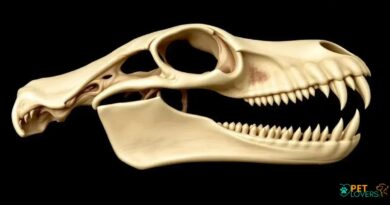What is: Alkaline diet for dogs
What is an Alkaline Diet for Dogs?
The alkaline diet for dogs is a nutritional approach that emphasizes the consumption of foods that promote a more alkaline pH in the body. This diet is based on the belief that a balanced pH level can enhance overall health, improve digestion, and reduce the risk of diseases. By focusing on alkaline-forming foods, pet owners aim to provide their dogs with a diet that supports optimal bodily functions and vitality.
Understanding pH Levels in Dogs
pH levels measure the acidity or alkalinity of a substance, with a scale ranging from 0 to 14. A pH level of 7 is neutral, while values below 7 are considered acidic and those above 7 are alkaline. In dogs, maintaining a slightly alkaline pH is believed to be beneficial for various bodily functions, including digestion, nutrient absorption, and immune response. An alkaline diet aims to shift the body’s pH towards a more alkaline state, potentially leading to improved health outcomes.
Key Components of an Alkaline Diet for Dogs
An alkaline diet for dogs typically includes a variety of fresh, whole foods that are rich in vitamins, minerals, and antioxidants. Common components include leafy greens, vegetables, fruits, and certain grains. Foods such as spinach, kale, broccoli, carrots, and sweet potatoes are often recommended. Additionally, some proponents of the alkaline diet suggest incorporating specific proteins, such as fish and lean meats, while avoiding processed foods and those high in acidity.
Benefits of an Alkaline Diet for Dogs
Advocates of the alkaline diet for dogs claim several benefits, including improved digestion, enhanced energy levels, and a stronger immune system. By reducing the intake of acidic foods, pet owners believe they can help prevent health issues such as obesity, kidney problems, and urinary tract infections. Furthermore, an alkaline diet may support healthy skin and coat, reduce inflammation, and promote overall well-being in dogs.
Potential Risks and Considerations
While an alkaline diet may offer benefits, it is essential for pet owners to approach this dietary change with caution. Not all dogs may thrive on an alkaline diet, and some may require specific nutrients that are more readily available in acidic foods. It is crucial to consult with a veterinarian or a pet nutritionist before making significant changes to a dog’s diet to ensure that all nutritional needs are met and to avoid any adverse effects.
How to Transition Your Dog to an Alkaline Diet
Transitioning a dog to an alkaline diet should be done gradually to minimize digestive upset. Start by slowly incorporating alkaline foods into their current diet while reducing the amount of acidic foods. Monitor your dog’s response to the new diet, paying attention to any changes in energy levels, digestion, and overall health. It may take time for your dog to adjust, so patience is key during this transition period.
Homemade Alkaline Dog Food Recipes
Creating homemade alkaline dog food can be a rewarding way to ensure your dog receives a balanced diet. Simple recipes may include a mix of cooked vegetables, lean meats, and whole grains. For example, a combination of quinoa, steamed broccoli, and grilled chicken can provide a nutritious meal. Always ensure that any homemade diet is well-balanced and consult with a veterinarian to confirm that it meets your dog’s specific dietary needs.
Commercial Alkaline Dog Food Options
For pet owners who prefer convenience, there are commercial dog food brands that offer alkaline-formulated options. These products are designed to provide a balanced diet while promoting an alkaline pH. When selecting commercial dog food, it is essential to read labels carefully, ensuring that the ingredients align with the principles of an alkaline diet and that they meet the nutritional standards set by veterinary associations.
Monitoring Your Dog’s Health on an Alkaline Diet
Regular monitoring of your dog’s health is crucial when following an alkaline diet. Keep an eye on their weight, energy levels, and overall well-being. Regular veterinary check-ups can help assess whether the diet is positively impacting your dog’s health. Blood tests may also be conducted to evaluate pH levels and ensure that your dog is receiving adequate nutrition from their diet.




